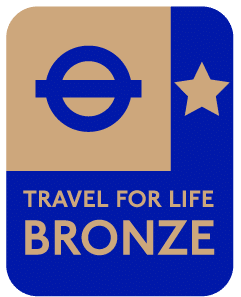Science
Intent
At St James we believe children learn science most effectively through hands-on observation, experimentation and discovery. We believe Science should excite pupils’ interests, build their confidence, enabling them to take risks, work out problems and raise further questions about the world we live in.
“The important thing is to never stop questioning.” Albert Einstein
Implementation
· All lessons, wherever possible, are practical and focus on one of the 5 science investigation skills
· All lessons begin with a question to be investigated and answered. These can be found in the Kent scheme of work
· Teachers plans will use thinking questions and challenge questions to deepen the children’s understanding and consolidate the vocabulary learnt
· In KS2 each topic begins with the sharing of the Big Ideas posters which shows where the children’s learning “fits” in their primary school learning journey
During Reception
- Science is covered in the “Understanding the World” part of the EYFS curriculum.
- It is introduced indirectly through activities that encourage children to explore, problem solve, observe and predict. Children explore people, creatures, plants and objects in the natural world. They use their senses to discover. They use questions to find out how things happen and how things work.
- The children are encouraged to be curious about what they notice.
- Topics are carefully chosen to immerse the children in practical sessions. The Ogden Trust activity cards are used to support learning and help with transition to the Science skills taught in Key stage 1.
During Key Stage 1
- All pupils are encouraged to develop and use a range of skills including observation, recording, investigation and recording of findings.
- Additionally, they are encouraged to question the world around them and become independent learners in exploring possible answers for their scientific based questions.
- Specialist vocabulary for topics is taught and built on progressively, and effective questioning to communicate ideas is encouraged.
- Concepts taught are reinforced by application through scientific enquiry often in real life contexts, so that pupils learn to use a variety of approaches to answer relevant scientific questions.
During Key Stage 2
- The principal focus of Science teaching is to enable pupils to broaden their Scientific view of the world around them.
- They should ask their own questions about what they observe and make some decisions about which types of scientific enquiry are likely to be the best ways to answer them, including observing changes over time, noticing patterns, grouping and classifying things, carrying out simple comparative and fair tests and finding things out using secondary sources of information.
- They will encounter more abstract ideas and begin to recognise how these ideas help them to understand and predict how the world operates. They should also begin to recognise that scientific ideas change and develop over time.
- They should select the most appropriate ways to answer science questions using different types of scientific enquiry. Pupils should draw conclusions based on their data and observations, use evidence to justify their ideas, and use their scientific knowledge and understanding to explain their findings.
- Pupils should read and spell scientific vocabulary correctly and with confidence.
Impact
Our Science Curriculum will result in an experience that will allow the pupils at St James to explore the world around them scientifically, by asking questions through the development of a curious mind and having the tools to observe, explore and investigate to find answers.
Assessment will be based on learning outcomes closely linked to the national curriculum and established through periodic assessments, year group based tasks and teacher judgement.
A more formative approach is used to assess and this allows for gaps and misconceptions to be addressed and acted on to have a greater impact on the pupils learning and ongoing progress.
Pupils will:
- be able to work individually or as part of a team to investigate and experiment
- make excellence progress with the development of their science skills and knowledge
- demonstrate an interest for science in and out of the school environment.
- question how and why things work
- show curiosity towards the world around them







